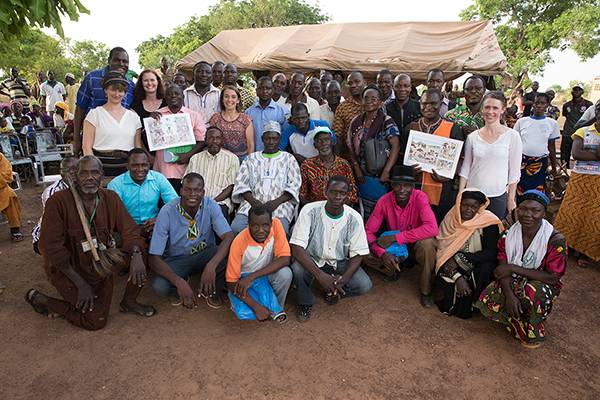You are here
Helping Secure the Globe from Outbreaks: Burkina Faso
Imagine a scenario in a foreign country where within a few days, four children with ties to the same school die from an unknown cause or causes. The illnesses feature similar symptoms, including fever. Are the deaths a coincidence, caused by an environmental issue or are they the result of a dangerous pathogen?
Each day headlines highlight outbreaks of dangerous diseases—MERS, avian influenza, Ebola. And each strikes fear into people around the globe because of their capacity to rapidly infect populations from Saudi Arabia to the United Kingdom or Liberia to America.
Perhaps you are wondering, is the story of the students part of an elaborate Hollywood script or a real-life example? Actually, this scenario played out earlier this year in the West African nation of Burkina Faso. I encourage you to read about what occurred in a new feature produced by the CDC Foundation and also learn about important work going on there between the Centers for Disease Control and Prevention (CDC), the Burkina Faso Ministry of Health and partners.
Through the Global Health Security Agenda launched in 2014, CDC is working with 31 countries, including Burkina Faso, to accelerate their ability to prevent, detect and respond to infectious disease threats. Work in Burkina Faso shows how organizations can come together to prepare for outbreaks, protecting the local country and thereby bolstering health protection around the globe.
In today’s interconnected world, diseases are able to spread farther and faster than ever before. A health threat anywhere is a health threat everywhere. Together, we can help CDC protect us all by strengthening health systems around the globe.
Photos: © Evelyn Hockstein/CDC Foundation

